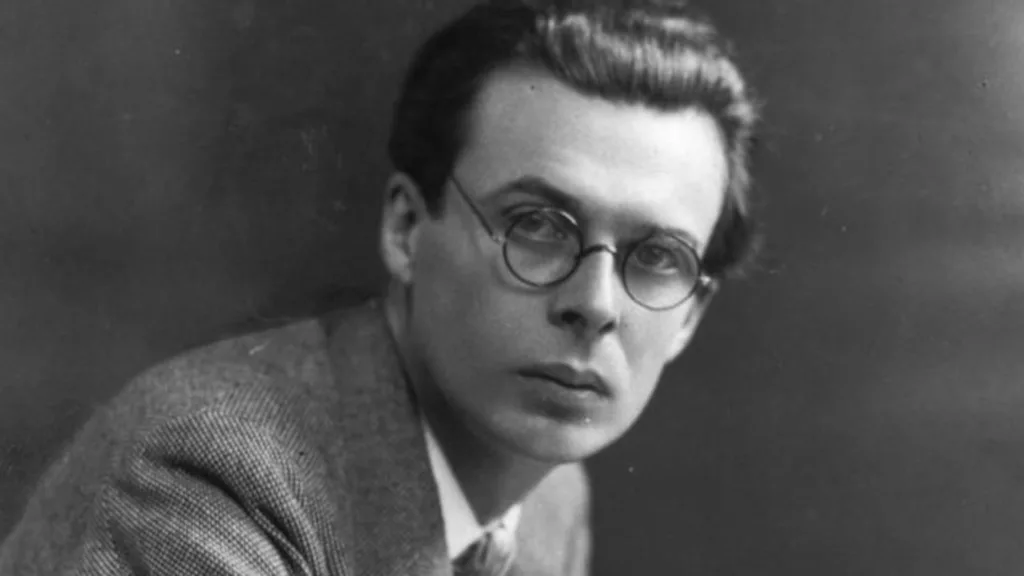Aldous Huxley is a renowned writer who explored the depths of the human psyche and the mysteries of consciousness. He is known for his book “The Doors of Perception,” which has inspired many people over the years. In this book, Huxley describes his experience with a hallucinogenic drug called mescaline, which he took in the 1950s under the supervision of a doctor.
The title of the book comes from a quote by the famous poet William Blake, which reads: “If the doors of perception were cleansed every thing would appear to man as it is, Infinite.” This quote is a metaphor for the limited nature of human perception and how it can be expanded through the use of drugs like mescaline. Huxley believed that by altering our perception, we could gain a deeper understanding of the world around us and ourselves.
Huxley’s experience with mescaline was intense and life-changing. He described seeing the world in a completely new way, with colors and shapes beoming more vibrant and meaningful. He also experienced a sense of unity with the universe and a feeling of transcendence beyond his physical body.
Huxley’s book has inspired many other writers, artists, and thinkers over the years. The Doors, a rock band from the 1960s, named themselves after the quote from Blake that inspired Huxley’s book. The band’s lead singer, Jim Morrison, was a fan of Huxley’s work and often referenced it in his lyrics.
Huxley’s exploration of the doors of perception and the nature of consciousness has had a profound impact on our understanding of the human mind and its potential. His work continues to inspire new generations of thinkers and artists, and his legacy lives on through his writings and the people he has influenced.
What Did Blake Mean By The Doors Of Perception?
William Blake was an English poet, painter, and printmaker who believed that mankind’s perception of reality was limited by their senses. In his book, The Marriage of Heaven and Hell, Blake wrote about the “doors of perception,” which he believed could be cleansed to allow people to see the world as it truly is, infinite. The doors of perception referred to the way in which people perceived the world around them, and how their perceptions could be expanded thrugh spiritual or mystical experiences. Blake believed that by opening the doors of perception, people could gain a deeper understanding of the world and their place in it. In essence, Blake’s concept of the doors of perception represented a call to look beyond the surface level of things and to seek out a higher, more meaningful reality.

Who Said There Are Things Known And Unknown And In Between Are The Doors?
The quote “There are things known and unknown; in between are the doors” was coined by the English poet and artist William Blake. The quote was later used as an inspiration for the name of the American rock band The Doors, which was suggested by the band’s frontman, Jim Morrison. The quote also appears on the flyleaf of Aldous Huxley’s book “The Doors of Perception”. The quote is often interpreted as a metaphor for the exploration of the unknown, the boundaries of perception, and the human experience.
When Did Aldous Huxley Open The Doors Of Perception?
Aldous Huxley opened the doors of perception in May 1953. During an afternoon in Los Angeles, he ingested four-tenths of a gramme of mescalin, which is the active hallucinogen found in a sacred cactus known as peyotl to Mexicans. He did this in the presence of an investigator and waited to see what would happen. Upon opening his eyes after taking the drug, Huxley experienced a new, uninhabited world, which was a result of the hallucinogenic effects of the drug.
Conclusion
Aldous Huxley was a visionary writer and intellectual who explored the boundaries of human consciousness and perception. Through his experimentation with hallucinogens such as mescaline, he was able to tap into new and uninhabited worlds of experience. His writings and ideas continue to inspire and challenge us today, as we grapple with questions of identity, meaning, and purpose in an ever-changing world. As we continue to explore the doors of perception, we can look to Huxley’s legacy as a guide and a source of inspiration for our own journeys of self-discovery and understanding.
